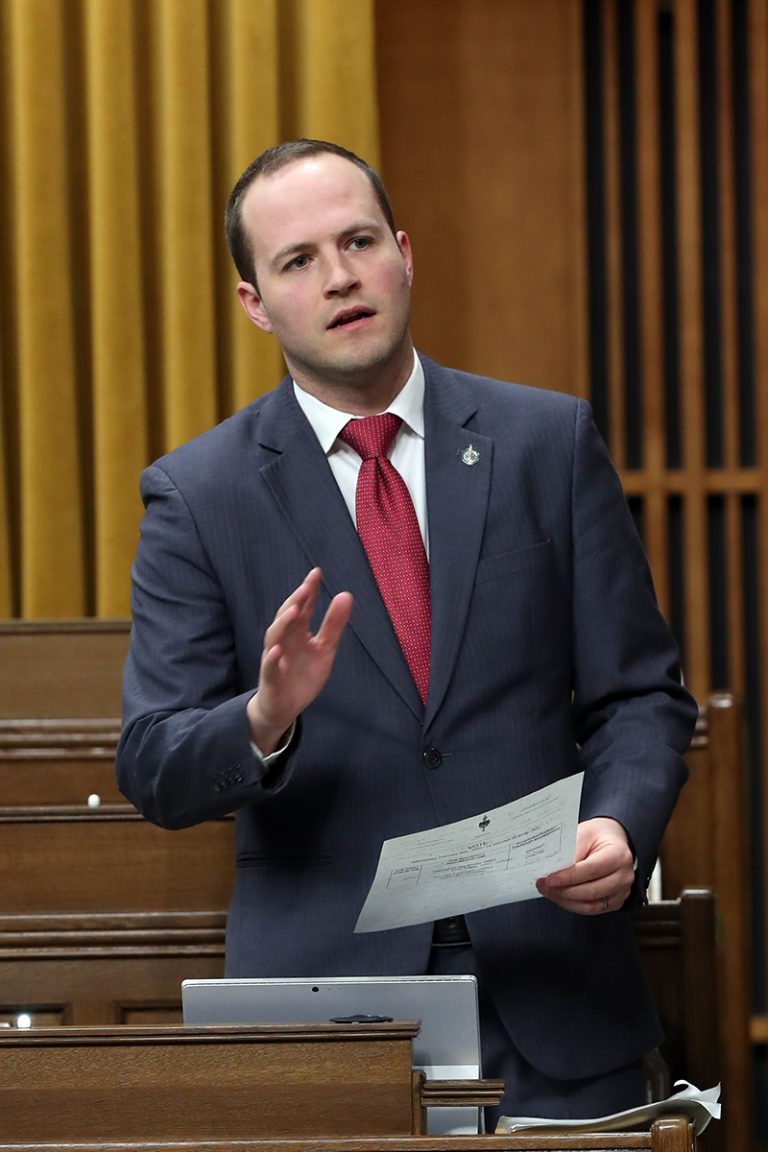Private member's business
Private members are members of the House of Commons who are not cabinet ministers or parliamentary secretaries. The Speaker and Deputy Speaker also do not sponsor or introduce private members’ bills or motions.
Private members’ proposals can take the form of a bill, a motion or a notice of motion for the production of papers.

Bill C-293, the Pandemic Prevention and Preparedness Act, requires the Minister of Health to establish an advisory committee to review the response to the COVID-19 pandemic in Canada in order to reduce the risks associated with future pandemics and inform a pandemic prevention and preparedness plan.
This bill will establish an independent commission of inquiry to review the activities of the RCMP. Bill M-72 aims to combat issues such as workplace and sexual harassment, systemic racism, use of force, and role in contract policing. It will allow for constructive recommendations with respect to its mandate, structure, culture, and governance.

Any company that has received money through the Canada Emergency Wage Subsidy is required to return an equal amount that is either paid in dividends or used to buy back shares.
This bill will address rising extreme wealth inequality and the generational fairness concerns. The suggestions made were; a one time tax on extreme wealth to aid in the pandemic response, specifically a 3% tax on assets over 10 million, and a 5% tax on assets over $20 million. Another aspect of this bill is to implement new tax measures on the transfer of extreme wealth. This will include an inheritance tax on estates valued at over $5 million. Purposed changes in the tax treatment of investment income will ensure more equitability in relation to employment income earned by working Canadians.
Since 2016, there have been 14,000 apparent opioid-related deaths in Canada. For the first time in 40 years, our country’s life expectancy has stalled, attributed by Stats Can to the opioid crisis. It is a national public health crisis.
We should treat problematic substance use as a health issue, not a criminal justice one. We should remove barriers to seeking treatment, not reinforce them. We should follow the evidence to save lives.
An Act to amend the Controlled Drugs and Substances Act (evidence-based diversion measures)
This bill creates an evidence-based diversion framework to ensure that police and prosecutors only proceed with criminal charges if it is inadequate to issue a warning or to refer individuals in need to health care services.It is built on the successful diversion model of the Youth Criminal Justice Act.
An Act to amend the Controlled Drugs and Substances Act and to make consequential amendments to other Acts.
This bill deletes the criminal sanction for drug possession for personal use in order to treat it as a health issue. When Portugal did the same, the number of people seeking treatment increased by 60%.
In October 2018, Erskine-Smith called an emergency debate on climate change in Parliament in response to the Intergovernmental Panel on Climate Change’s special report on global warming. He requested action to be taken by the government and Canadians to ensure that Canada can reduce its emissions and reach the targeted goals. On June 5, 2019, Erskine-Smith introduced Bill C-454, the Net-Zero Greenhouse Gas Emissions Act, to require the Government of Canada to reduce GHG emissions to net zero by 2050.
An Act to amend the Personal Information Protection and Electronic Documents Act (compliance with obligations)
Nate served as vice-chair of the access to information, privacy, and ethics committee in the last parliamentary session. This bill is based on recommendations from two reports the committee worked on.
An Act to amend the Criminal Code, the Fisheries Act, the Textile Labelling Act, the Wild Animal and Plant Protection and Regulation of International and Interprovincial Trade Act and the Canada Consumer Product Safety Act (animal protection).
The bill won support from EndCruelty, a coalition of Canadians who support stronger animal protection laws. Due to concerns from animal use lobbyists, the bill was defeated 198 to 84 at second reading. Two years later, a government bill addressing similar concerns was tabled by Justice Minister Jody Wilson-Raybould. She acknowledged Erskine-Smith’s efforts as a precursor to the government’s legislation. The defeat of Erskine-Smith’s Bill C-246 led to the creation of the Liberal Animal Welfare Caucus in 2017. On September 5, 2017, Erskine-Smith wrote a piece in Now Magazine addressing his veganism and the importance of a social change towards the treatment of animals.